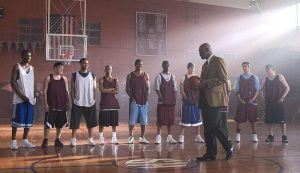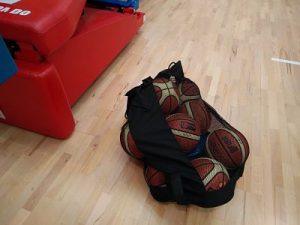Basketball coaches live in a continuous decision-making. We need to be proactive, focusing on what we can influence, and creative, freeing up existing talent in our players.
Along with this, it will be very important for us to live with error, since constant decision-making will inexorably lead to successes and failures. Accepting error as inherent in our work will be essential, as well as having a formative self-demand. We are responsible for our own learning, and it cannot be stopped only in coaching courses, but must go further. We have more than enough tools for it.
The coach must lead, but for this we have to understand the types of leadership that we can use (authoritarian, democratic, self-management, etc.), and how to form our own style:
- What are our personal values? Commitment, attitude.
- Our feelings. Am I passionate about my job or do I just keep the file? Recognize reality.
- What an image we convey to those around us.
- Our level of communication, verbal and nonverbal.
I rescue another sentence from the book "So You Lead, You Compete," by Patricia Ramirez. This is from Aito García Reneses: "I manage to have credibility through my knowledge of the ideas I defend".
What is our code of ethics as a coach?
Our commitments not only to our team/club/players but to ourselves. Our values will mark our personal ethical code :
- Methodical?
- Worker?
- With concerns?
- Do I promote cohesion?
- Do I worry about my team off the court, too?
- Etc.
Keep in mind that, especially in initiation and training categories, we not only train, but are a benchmark for our players at all levels. We train, train and educate, so we need to be an example to follow in our behavior.
How do I run? How do I correct?
We are often doubted in this field. Punishment (positive-negative) and reinforcement (positive-negative) are basic tools with which we will have to "play" when directing a collective.
- Do not train using punishment as the main tool.
- Seek balance, without abusing positive reinforcement, faced with the possibility of losing effectiveness.
- Encourage discipline and respect among all.
- Trust and commitment. Basic pillars, give and generate.
- We attract athletes, we have to promote the playful aspect of the sport in every training. This must be accompanied by competitiveness, which is necessary in every exercise.
- Forming "people for basketball", not only do you need very good players, those who are not (or will not be) so much are just as important. We need people who want to stay in basketball, and for that the memory of their playing stage must be positive.
- Escape the predictability in the task.
- Energize training, everyone does something every moment.
- Few objectives, clear and concise. If we correct everything in each exercise we will generate a high level of frustration in the group and in ourselves.
- Simple exercises. Escape from those who force us to focus more on how we rotate than on the target itself.
- Teach the technique of the game. It's the hardest thing, but what young players need most.
- Boost the strengths of the group and the player. Build trust and from there improve weaknesses.
- Two-way communication. Talk and listen.
- Formation above the result (this as a final consequence).
- Search for the right requirement.
- Differentiate learning rhythm from training rhythm.

